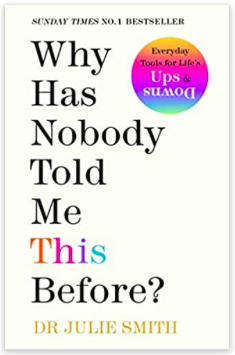Disclaimer: To make this site free for our readers, we earn money from advertising, affiliate sales and sponsorships. Please see our disclosure page for more info on how this works.
*****
It’s now estimated that 1 in 5 Americans take some form of medication for mental health issues, including anxiety issues, and even children under the age of 10 may be prescribed antipsychotic medications to help with a range of symptoms including stress and anxiety.
As is often the case with the mainstream medical profession, an important issue may have been overlooked. Anxiety is a normal human emotion, and dealing with it, including addressing the root cause of it, rather than suppressing it with medication, can often be a healthier long-term solution.
Extreme anxiety isn’t easy to deal with, especially when it’s brought on by a clear and present danger, but sometimes it really is functional. If someone follows you into a dark alley, those anxious feelings of a racing heartbeat and sweaty palms can be very unpleasant, but the physical reaction you’re feeling has a function. If the worst happens and you find yourself under attack, your body receives a rush of adrenalin that can save your life. This is the fight or flight response.
While the fight or flight response happens for a reason, it’s clearly not healthy to live with high levels of ongoing stress. In most cases though, the best long-term solution will be to address the cause of the anxiety and deal with that. Women in abusive relationships for example, sometimes report that the adrenaline of fight or flight can get to be almost constant. The obvious solution here is to deal with the abuse, but it’s not unheard of for the victim to end up being medicated instead. What sort of a world do we live in where doctors are basically prescribing victims medication in order for them to deal with abuse?
We all experience panic or anxiety in small ways. In new situations, we get nervous but when the outcome we fear fails to materialize, the anxiety subsides. Often when we face our fears and do well, we feel even better, prouder and happier afterwards. Facing fears and overcoming them is good for us.
If you suffer from chronic anxiety, however, the feeling of panic can prevent you from overcoming that anxiety and lead you into a downward spiral. If you suffer from anxiety attacks on occasion or a more frequent anxiety disorder, there are steps you can take to keep your anxiety under control.
See a professional
This is always a good first step. A professional counselor or psychologist can help you understand your anxiety and find effective techniques to deal with it. Try and find a counselor that specializes in anxiety disorders, or a specific phobia if this is what triggers your anxiety, and make it clear you’re looking for solutions that don’t involve medication.
Sort out your sleep schedule
The ability to sleep well is often the first thing to disappear when dealing with anxiety, which is unfortunate as that’s when you need it most. During the sleep cycle, your body repairs itself. You feel much more able to cope with anxiety after several hours of restorative sleep. Most people need around eight hours a night, and being sleep deprived will contribute to feelings of anxiety.
Sadly, many people feel the need to take sleep medications as well as anxiety medications, potentially masking both issues. Consider natural sleep aids before you double up on medication. You can find out more about getting a good night’s sleep here.
Sadly, many people feel the need to take sleep medications as well as anxiety medications, potentially masking both issues. Consider natural sleep aids before you double up on medication. You can find out more about getting a good night’s sleep here.
Meditate
Meditation is more than chanting mantras. Simple mediation such as taking 5 minutes to clear your mind every day can work wonders in the fight against anxiety. Try a meditation class or a yoga class that integrates basic meditation techniques. If you can’t find a suitable class near you, or feel self-conscious about learning something like this in a class (many people do) I suggest you try this virtual meditation program.
Manage the worry
What form anxiety management takes for you will depend on a lot of different factors. If you have not idea yet which tools, techniques and coping strategies will work for you, then this book has some great options you can consider.
Limit alcohol
You might think that the glass of wine is relaxing your tension but alcohol is a depressant. Too much of it will cloud your ability to keep things in perspective, and habitually relying on it when stressed means you could gain another problem in the process.
Relax intentionally
Stress can rob you of your energy, but if you make an effort to do something you enjoy, it will help minimize the stress. Do something fun regularly, whether that’s gardening, painting, reading or listening to music.
Anxiety can come into your life at any time. It’s normal. It’s functional. But if it gets out of hand it can quickly lead to more serious problems including long-term depression and even addictions. Don’t suffer in silence, but don’t assume that medication is the only solution for you either.
Want to improve your life, week by week? Get our free guide, 20 Things To Do Every Week.


Thanks so much for writing this blog. I'm a social anthropologist and have just started doing research on peoples' experiences of food allergies in the US, UK and Japan. This is also a topic close to my heart as I've been allergic to nuts and fish since I was a kid and have also been wondering recently about whether reactions are sometimes fear-induced panic attack symptoms or actually 'real' symptoms.
Thank you for posting about your experiences and experiments!